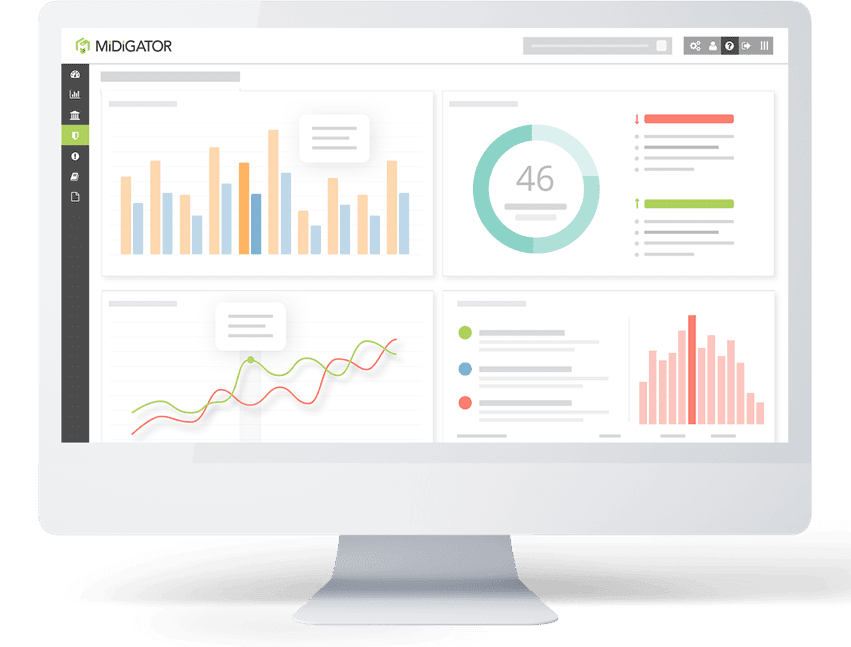You just received a chargeback. Now what?! Are there any chargeback rights for merchants? Is there anything you can do? Or do you just have to accept the chargeback fees and the time-consuming chargeback processes that go along with it?
Fortunately, you do have rights. And it’s important to understand and defend those rights.
What Rights Do Merchants Have?
When general purpose credit cards were introduced several decades ago, the new payment method offered several benefits — but it also brought unprecedented challenges for consumers and merchants alike. For example, what would happen if someone stole a credit or debit card and used it without permission? Would the cardholder have to pay for the unauthorized purchases?
To tackle fraud, billing errors, and similar concerns, lawmakers took steps to provide needed protections for consumers. The new laws prompted the card brands (Mastercard®, Visa®, etc.) to create their own safeguards. The result was a chargeback process that ensures cardholders aren’t liable for fraud and other credit card transaction issues while protecting consumer rights under the Fair Credit Billing Act (FCBA).
Because of the original purpose and goals of the dispute process, chargeback rights are often more oriented towards protecting cardholders than merchants. However, there are several very valuable chargeback rights that can impact merchants in important ways.
You have the right to be educated on card brand rules.
Card networks regulate many variables related to payment processing including disputes and chargebacks. Rules are published in detailed guides, and you have the right to review the documents so you know what’s expected of you.
Discover® and American Express® publish their guides in their online merchant portals. You can log in to your account and access the rules. Mastercard and Visa share their documents publicly. You can find Mastercard’s chargeback rules here and Visa’s dispute guide here.
If you need help finding a copy of the rules, have questions about them, or want to be notified of changes, you can contact your processor.
But the very best way to stay informed about policies and updates is to bookmark the Midigator® blog and subscribe to our newsletter. We simplify complex topics so you can easily access and understand the information that’s most important to your business.

Sign up for news & updates.
Card brands regularly update their rules as technology capabilities, cardholder expectations, and industry trends evolve. New chargeback guides are usually published in April and October. Be sure to check for policy updates so you stay current on regulations.
You have the right to know why a transaction was disputed.
Each credit card chargeback you receive has a negative impact on your business. Among other things, you lose money, your reputation is tarnished, and client satisfaction drops.
You have a right to know why all that pain and suffering is happening!
When a cardholder disputes a charge, the issuing bank will assign a reason code to the chargeback. Reason codes can help you understand why transactions are disputed.
Each card brand has its own unique list of reason codes. You can view the entire database here.
It’s important that you understand reason codes so you can accurately resolve the issue.
You have the right to blacklist high-risk customers and banks.
Two of the primary components of an effective chargeback prevention strategy are identifying potential threats and avoiding future risks. Otherwise, you’re bound to run into the same problems over and over again.
That means you might need to stop doing business with certain people because they pose a risk to your business — and that’s a chargeback right you should exercise whenever necessary to help prevent further fraudulent transactions.
Some customers will be repeat offenders and will file a chargeback over and over. And some issuing banks will initiate invalid disputes with alarming frequency. In these situations it’s acceptable to blacklist customers or banks that have a high likelihood of producing chargebacks. You can block transactions indefinitely or just until you resolve the underlying issues.
Click here to read how a Midigator client discovered a high-risk issuer and took steps to prevent future chargebacks.
You have the right to fight invalid chargebacks.
Of all the chargeback rights you have, this is probably the most important: you have the right to fight invalid chargebacks.
An invalid chargeback is defined as an unnecessary or non-compliant payment dispute — a chargeback that shouldn’t have happened. There are two types of invalid chargebacks.
1. The reason for the dispute was false or inaccurate.
These disputes are commonly referred to as friendly fraud.
Friendly fraud happens when a cardholder uses the chargeback process incorrectly, either as an intentional attempt to get something for free or an innocent misunderstanding.
Here are a couple examples of friendly fraud that can result in illegitimate chargebacks:
- Susie claims her merchandise wasn’t delivered, but it actually was.
- Ryan disputes a purchase because he forgot to cancel his subscription.
- Molly doesn’t recognize a transaction and assumes it is fraud.
2. The dispute didn’t follow card brand rules.
These disputes happen when the issuer overlooks or misunderstands one or more of the card brand’s regulations.
Some examples of actions that may make a dispute invalid include:
- Filing a chargeback after the time limit
- Initiating a dispute for an amount that is greater than the original transaction amount
- Not contacting the merchant’s customer service prior to disputing the transaction
- Choosing to initiate a chargeback without attempting to return the merchandise
IMPORTANT
If you have evidence that proves a chargeback is invalid you can, and should, fight it. Midigator can help.
It doesn’t matter what makes the chargeback invalid. If you can make a credible argument and support your case with proof, you can fight the chargeback. These articles explain how to do that.
Not convinced this is a right you should worry about upholding? Check out this article. It outlines the five things that happen when you respond to chargebacks.
The cost of chargebacks can weight heavy on your bottom line. When you are ready to fight, Midigator can help. We’ll work with your team to create a strategy that is just right for your business. Then, we’ll provide the tools and technology you need to achieve the results you deserve. Contact our team of experts if you’d like to learn more.
You have the right to escalate a case to arbitration.
Arbitration is defined as:
A process that disputing parties use to seek a verdict from an independent third party. After reviewing the evidence provided, the neutral arbitrator has the authority to make a final decision about the case.
When applicable, arbitration can be used to settle a payment dispute. If the desired outcome hasn’t been reached after all stages of the chargeback process have been completed in full compliance with card brand regulations, the case can be escalated to arbitration.
You have the right to use the arbitration process whenever it’s appropriate. However, this is a right you’ll want to exercise strategically. The losing party is responsible for paying all arbitration costs. You’ll likely only want to advance a dispute to arbitration if you have a strong probability of winning the case.
You have the right to get help.
When it comes to chargeback management, you have a lot of rights — but you also have a lot of responsibilities. It’s a difficult, time-consuming process to constantly figure out what you should and shouldn’t be doing.
Fortunately, you don’t have to make those important decisions by yourself. You are allowed — and encouraged — to get help from a chargeback expert.
You can get help at any time. You don’t have to wait until you’re frustrated and confused or your chargeback situation is out of control.
And, assistance can be as simple as reaching out to your processor when you have questions or it can be as comprehensive as outsourcing tasks to a service provider.
If you’re not sure where to begin or how to ask for help, start by contacting Midigator. We’ll take a look at your current situation and offer advice on what strategy would be best going forward. You can reach out to our team here.
Protect Your Chargeback Rights as a Merchant with Midigator
At Midigator, we believe the challenge of running a business should be delivering great products or services, not managing payment risk. Trying to decipher merchant chargeback rights and determine if they are being upheld isn’t something you should have to worry about.
Let us simplify the complexities and defend your chargeback rights for you. You just focus on what matters most: growing your business.
Sign up for a demo of Midigator today.













